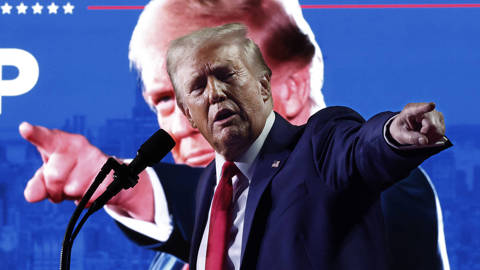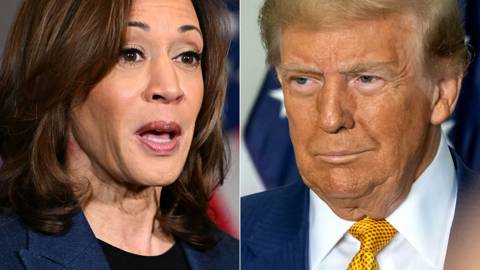OnPoint Subscriber Exclusive
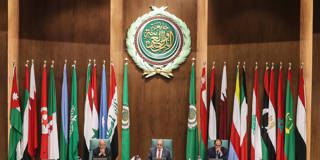
Barak Barfi
Says More…
This week, Project Syndicate catches up with Barak Barfi, a research fellow at New America, where he specializes in Arab and Islamic affairs.
Project Syndicate: Since you sounded the alarm about Egyptian President Abdel Fattah el-Sisi’s efforts to extend his rule, the public overwhelmingly approved the relevant constitutional changes in a referendum. The timing of the push, you wrote, was carefully chosen: the socioeconomic turmoil unleashed by the 2011 Arab Spring uprising was finally subsiding, and GDP growth had recovered. How might Sisi’s political fortunes be affected by the plunge into global recession caused by the COVID-19 crisis? Will the expansion of his powers – and those of the army – during the state of emergency be an effective deterrent to protest?
Barak Barfi: It is far too early to be able to predict with any accuracy the effects the COVID-19 crisis will have on Egypt’s economy and politics. That said, there is no question that the economy is being hit hard. The major hard-currency earners (hydrocarbons, Suez Canal traffic, tourism, and remittances) have suffered a devastating blow. And once the world economy emerges from the COVID-19 doldrums, only one of those – canal traffic – will rebound. To help cushion the blow, Egypt is once again seeking international assistance, this time in the form of a $2.8 billion emergency loan from the International Monetary Fund.
On the political front, the global nature of the COVID-19 crisis is likely to drive Egyptians to give Sisi considerable leeway. They know he did not create the virus. But they also know that he will not solve the problems it has spawned.
PS: Beyond Egypt, could the pandemic fuel upheaval in other Arab countries? What measures are governments taking that might, by design or effect, mitigate this risk
BB: There is a considerable time lag between events and the crises they trigger. A 2008 drought in Syria devastated the rural poor, who proceeded to form the heart of the opposition during the civil war.
As for COVID-19, the most affluent Arab countries may be the ones that experience the most profound new challenges, given their reliance on oil and gas. Prices have cratered this year and won’t recover to pre-pandemic levels any time soon. To mitigate this risk, Saudi Arabia recently announced that it would increase its value-added tax by 15% and cancel a $266 monthly stipend for government employees. Poorer countries may be forced to take a similar approach, lifting subsidies on essential commodities like bread, energy, and water.
PS: Despite the COVID-19 crisis, the conflict in Syria – and Turkey’s conflict with the Kurds – rages on. Could the pandemic change the situation on the ground, or is it more likely simply to increase the death toll?
BB: The Turkish-Kurdish conflict has largely reverted to a war of words. Last year, the Turks and their Arab proxies captured Kurdish-held, Arab-dominated frontier territory. They are unlikely to continue the offensive by pushing into Kurdish-majority areas, where they would be viewed as a hostile force.
As for the province of Idlib – the last stronghold of the rebel groups that have been trying to overthrow President Bashar al-Assad since 2011 – the virus has led to a break in the fighting. But it won’t last. Bent on eliminating every last pocket of resistance, Assad’s regime will not stop until Idlib is again under its control.
PS: You have criticized the West’s habitual kowtowing to Saudi Arabia, as well as its indulgence of Sisi’s pharaonic fantasies, which you attribute to an enduring “belief that tacitly supporting authoritarian Arab regimes will secure stability.” Why is that belief wrong? After all, some would say that democracy merely brought a corrupt and incompetent Muslim Brotherhood government briefly to power in Egypt, while Western-imposed regime change in Afghanistan and Iraq has fueled a generation of turmoil in the wider Middle East.
BB: History shows that nascent states experience growing pains. The United States suffered through Shays’ Rebellion (an armed uprising in western Massachusetts over government attempts to collect taxes) in 1786-1787, and the Whiskey Rebellion (a response to a proposed tax on distilled spirits in western Pennsylvania) in 1791-1794.
In Arab countries, the 2011 revolutions largely failed to produce the desired change, because of a lack of qualified leaders who can translate the people’s demands into an effective democratic transition. After all, in authoritarian countries where unelected leaders rule for decades, there is no viable political class.
I discussed this phenomenon in my PS piece on Libya, where Muammar el-Qaddafi – who ruled for four decades before being overthrown in 2011 – personally signed every contract worth more than $200 million. It could also be seen in Egypt, where Hosni Mubarak – whose 29-year rule ended a few months before Qaddafi’s – personally selected every officer for promotion above the rank of captain.
More broadly, political acumen is not a consideration in the selection of government ministers; Arab leaders prefer bloodless technocrats. This leads to poor governance, corrupt institutions, and economies beset by frictional unemployment. This is the real obstacle to securing effective transitions in the Arab world – and the main recruiting tool for jihadists, who turn their frustrations against the West.
BY THE WAY. . .
PS: What will be the pandemic’s most consequential legacy in the Middle East? Will the decline of US global leadership – which the pandemic seems to be accelerating – lead to further instability?
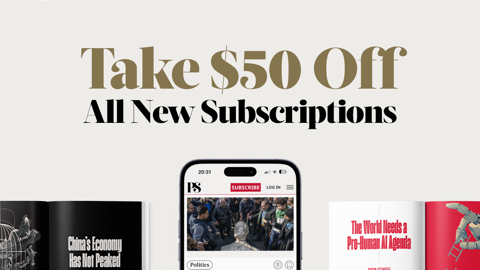
HOLIDAY SALE: PS for less than $0.7 per week
At a time when democracy is under threat, there is an urgent need for incisive, informed analysis of the issues and questions driving the news – just what PS has always provided. Subscribe now and save $50 on a new subscription.
BB: The Middle East is synonymous with instability. Only strongmen have ever pacified the various regions, sects, and tribes, and even then only temporarily. Beneath the surface calm, pressures continue to build, until they eventually explode.
In any case, I do not put much stock in the idea we are witnessing the decline of American power in the Middle East, not least because there is no real replacement. Yes, Russia has been gaining influence in the region, but the countries where it has the strongest foothold – Libya and Syria – are failed states. Neither has ever been a leading Arab power. All they could really do was block an Arab consensus from emerging on issues such as peace with Israel.
Meanwhile, Russia has made few inroads in the Persian Gulf – the Arab world’s financial and political epicenter. The Russians and the Saudis are currently at odds over oil prices. And the Gulf countries’ greatest fear – a powerful Iran – puts them firmly on the side of the US rather than Russia, an Iranian ally. They will not look to the Kremlin to check Iran’s regional ambitions.
PS: You have been tasked with designing a new Middle East policy for Europe. What are the first changes you make?
BB: I would start with an overarching guiding principle: Speak with one voice.
The French have historically adopted positions that conflict with those of its allies. When the United Kingdom and the US were trying to rebuild West Germany after 1945, the French were focused on extracting resources for domestic use, such as in industrial production. Likewise, France consistently undermined US attempts to secure peace with the Palestinians and in Syria.
Today, France’s independent streak is most apparent in Libya. The French have allied with the Russians to support a renegade military officer against the internationally recognized government. When a conference in Berlin last January produced agreement on a weapons embargo, aimed at halting the fighting, the French immediately undermined it.
If Europe is to be an effective player in the Middle East, a united front is crucial.
PS: Even as Turkey releases criminal inmates to limit the spread of COVID-19, it has kept political prisoners in custody, reflecting the government’s protracted crackdown on dissent. At a time when the pandemic has left authoritarian leaders around the world facing little external pressure, what does President Recep Tayyip Erdoğan fear?
BB: Erdoğan’s biggest fears today are an end to Donald Trump’s presidency and the resolution of the Syrian refugee crisis. Trump has provided Erdoğan with virtually unlimited support – something no other US leader would do. It is shocking that the US still has not announced any sanctions against the Turks for purchasing a Russian S-400 missile-defense system.
As for the refugee crisis, Erdoğan has used it as a cudgel to beat Europe into accepting his increasing authoritarianism and stuffing his dwindling coffers. Without that leverage, his position would be severely weakened.
PS: As someone who has regularly visited Syria, what are most outside observers missing about the conflict?
BB: Few have ever understood the Assad regime’s silent supporters, who are motivated not by fear and sectarianism, but by the desire for stability.
A few years ago, in a Kurdish-controlled region of Syria, I stopped at a kiosk on the highway and asked the Sunni-Arab proprietor if I could interview him. He asked if I had a permit to do so. I said yes, issued by the Kurdish administration. “No,” he interjected. He meant the regime. The closest regime-controlled city was hundreds of miles away, yet his loyalties lay with a president whom the West claims can win only by butchering his people.
There were no slaughterhouses on that dusty isolated road. There was only a man pining for a modicum of stability and cursing the rebels who had stripped him of it.
Barfi recommends
We ask all our Say More contributors to tell our readers about a few books that have impressed them recently. Here are Barfi's picks:
-
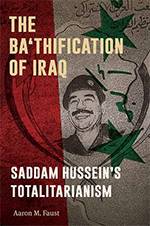
The Ba’thification of Iraq: Saddam Hussein’s Totalitarianism
by Aaron M. Faust
Through an analysis of Ba’th Party internal documents and a comparison with other totalitarian systems, Faust explains how the Iraqi leader was able to control his people so completely: he mixed classic totalitarian tactics with distinctly Iraqi methods to transform state, social, and cultural institutions into pillars of fealty. The book is structured according to the four overarching types of control Hussein used: ideology, organization, terror, and enticement.
-
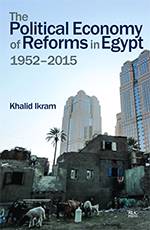
The Political Economy of Reforms in Egypt: Issues and Policymaking Since 1952
by Khalid Ikram
Why is Egypt’s economy so brittle? Using a combination of economic theory and an exhaustive examination of government economic reports, Ikram concludes that the answer is a combination of low savings, paltry investment, and virtually non-existent productivity growth. Egypt produces nothing of importance for export beyond hydrocarbons, and survives largely on international handouts. As a result, growth is illusory and not a viable benchmark for assessing the country’s success.
-
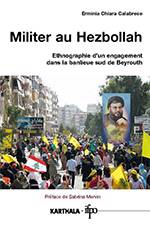
Militer au Hezbollah: Ethnographie d’un engagement dans la banlieue sud de Beyrouth
by Erminia Chiara Calabrese
I try to read one foreign-language book at any given time, in order to avoid becoming trapped in an Anglo-centric conceptual box. This book is an excellent example of how French researchers combine a close reading of original texts with field research – something that is largely absent among American scholars. In this case, Calabrese blends analyses of writings by Hezbollah luminaries, such as Deputy Secretary General Na’im Qassim, with an account of a six-year sojourn in the organization’s Beirut stronghold. Particularly striking is her fine-grained account of the various forms of engagement with the party and the selection process for individual members, alongside her construction of a sociological matrix of her neighbors and interviewees.
From the PS Archive
From 2013
Barfi describes the right way to pressure Syrian President Bashar al-Assad’s regime. Read more.
From 2016
Barfi traces how Egypt reached the point of relinquishing territory in exchange for Saudi aid. Read more.
Around the web
In a 2018 interview with the Turkish Heritage Organization, Barfi considers the effect of Jamal Khashoggi’s killing on the trilateral relationship between the US, Turkey, and Saudi Arabia. Watch the clip.
In a 2017 commentary for the Washington Institute, Barfi emphasized the need for US forces to balance their proxies and objectives in fighting the Islamic State in Syria. Read the article.
